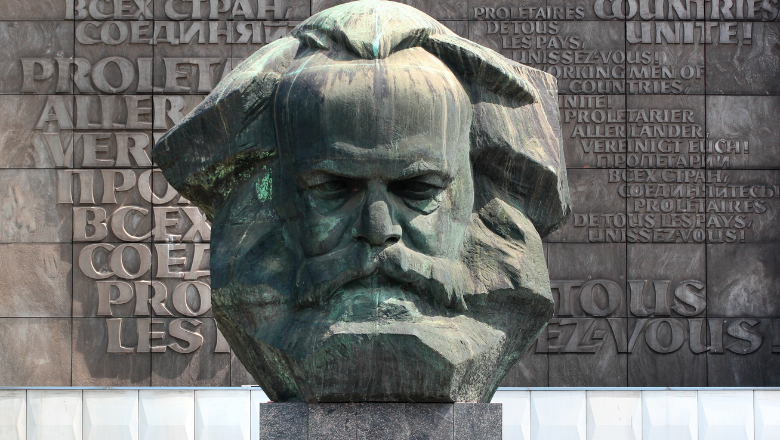
Dr Nicholas Courtman
Alfred Landecker Lecturer
- Postdoctoral Fellow
Biography
Nicholas Courtman's current research focuses on the history of citizenship law and naturalisation practice in the Federal Republic of Germany, with a particular focus on the after-effects of National Socialism. He studied in Cambridge, Oxford, Berlin, and Chicago before completing his PhD in 2020. He then worked at a Berlin migration policy think-tank (SVR – Expert Council on Migration and Integration) before beginning a postdoctoral research fellowship at King's, funded by the Alfred Landecker Foundation.
Research interests and PhD supervision
- The History of the Federal Republic of Germany, especially the History of Citizenship and History of Migration
- German-Language Literature and Culture since 1945
- Post-War History and Culture of German-Speaking Jews
- Non-German collaborators with Nazi Germany, especially in the Waffen-SS, and their postwar lives in West Germany
Nicholas Courtman's current research examines continuity and change in West German citizenship law in the wake of National Socialism. Drawing on previously unseen files from over a dozen archives in Germany and other European countries, his research focuses on topics such as the privileges which the West German state granted to non-German Waffen-SS volunteers in matters of naturalisation to help protect them from prosecution in their home states; the ways in which West German state officials, federal judges, and legal scholars tried to implement and justify racist discrimination in naturalisation practice in the late 1950s; health discrimination and the afterlife of eugenics in the West German naturalisation process; the treatment of (German) Jews in matters of citizenship law since 1949, from the serious restriction of those rights by antisemitic civil servants in the 1950s through to the liberal extension of naturalisation rights in 2021.
Much of this research will be published in stand-alone book chapters or journal articles. Nicholas Courtman is currently working on a monograph that will focus specifically on the naturalisation of non-German Waffen-SS volunteers in the Federal Republic of Germany.
Selected publications
‘Race and Racism in the Citizenship Law and Naturalisation Practice of Early West Germany’, in Reimagining Citizenship in Postwar Europe, ed. by Samuel Clowes Huneke and Rachel Chin (Cornell: Cornell University Press, 2025), pp. 85-114
(with Tarik Tabbara): ‘Wiedergutmachung im Staatsangehörigkeitsrecht: Zu gesetzlichen Änderungen in Bezug auf NS-Unrecht und Geschlechterdiskriminierung’, Asylmagazin nr. 5 (2022): 145-54 (Reparative Justice in Citizenship Law: On Legal Changes in Relation to National Socialist Injustice and Gender Discrimination’
(with Jan Schneider): Erfolgsfaktoren einer gelingenden Einbürgerungspraxis: Expertise des wissenschaftlichen Stabs des Sachverständigenrats für Integration und Migration im Auftrag der Beauftragten der Bundesregierung für Migration, Flüchtlinge und Integration, Berlin 2021.
‘Reforged or Deformed? Forced Labour, Human Instruments, and the Critique of the Gulag System in Herta Müller’s Atemschaukel’, Seminar: A Journal of Germanic Studies2 (2021): pp. 134-154
‘Besser spät als nie. Die Mühlen der staatsangehörigkeitsrechtlichen Wiedergutmachung in der BRD seit 1949’, Jalta. Positionen zur jüdischen Gegenwart 7 (2020): pp. 71-77
Expertise and public engagement
Nicholas Courtman has worked with numerous German and international media outlets with regard to the naturalisation rights of victims of Nazi persecution and their descendants, and is always happy to comment on aspects of historical or contemporary German citizenship law policy. He has served as an expert witness on aspects of citizenship law policy during hearings in the Home Affairs select committee of the Bundestag on two occasions, and has been co-author for two policy studies on contemporary German naturalisation practice.He has worked with German museums, contributing a text to the programme accompanying Alfredo Jaar's installation in Munich’s Pinakothek der Moderne, and giving a public talk as part of the events programme for a special exhibition on the history of citizenship at the German Historical Museum. He has also been invited to give public lectures on his research at the Fritz-Bauer Institute for Holocaust Studies at the University of Frankfurt, and at the London Leo Baeck Institute.
He has also served as an expert witness in two hearings relating to citizenship law reform in the Domestic Affairs select committee of the German Bundestag. The hearings can be viewed here and here.
Research

Centre for German Transnational Relations
The centre examines Germany's changing transnational role in the economic, political and cultural spheres. We study how the recent rise of Germany to a position as a 'reluctant hegemon' shapes European economies as well as the world economy.

Cultures in Motion: Diaspora and Migration Studies
Addressing contemporary questions of race, gender, language and migration
News
New research reveals racism in citizenship law in post-war West Germany
A new book chapter by Dr Nicholas Courtman, Alfred Landecker Lecturer in the Department of Languages, Literatures and Cultures, investigates previously...

Events

Diaspora and Cultures of Migration
Professor Kevin B. Anderson explores Marx’s Late Writings: Theories of revolutionary change and of alternatives to capitalism.
Please note: this event has passed.
Research

Centre for German Transnational Relations
The centre examines Germany's changing transnational role in the economic, political and cultural spheres. We study how the recent rise of Germany to a position as a 'reluctant hegemon' shapes European economies as well as the world economy.

Cultures in Motion: Diaspora and Migration Studies
Addressing contemporary questions of race, gender, language and migration
News
New research reveals racism in citizenship law in post-war West Germany
A new book chapter by Dr Nicholas Courtman, Alfred Landecker Lecturer in the Department of Languages, Literatures and Cultures, investigates previously...

Events

Diaspora and Cultures of Migration
Professor Kevin B. Anderson explores Marx’s Late Writings: Theories of revolutionary change and of alternatives to capitalism.
Please note: this event has passed.
